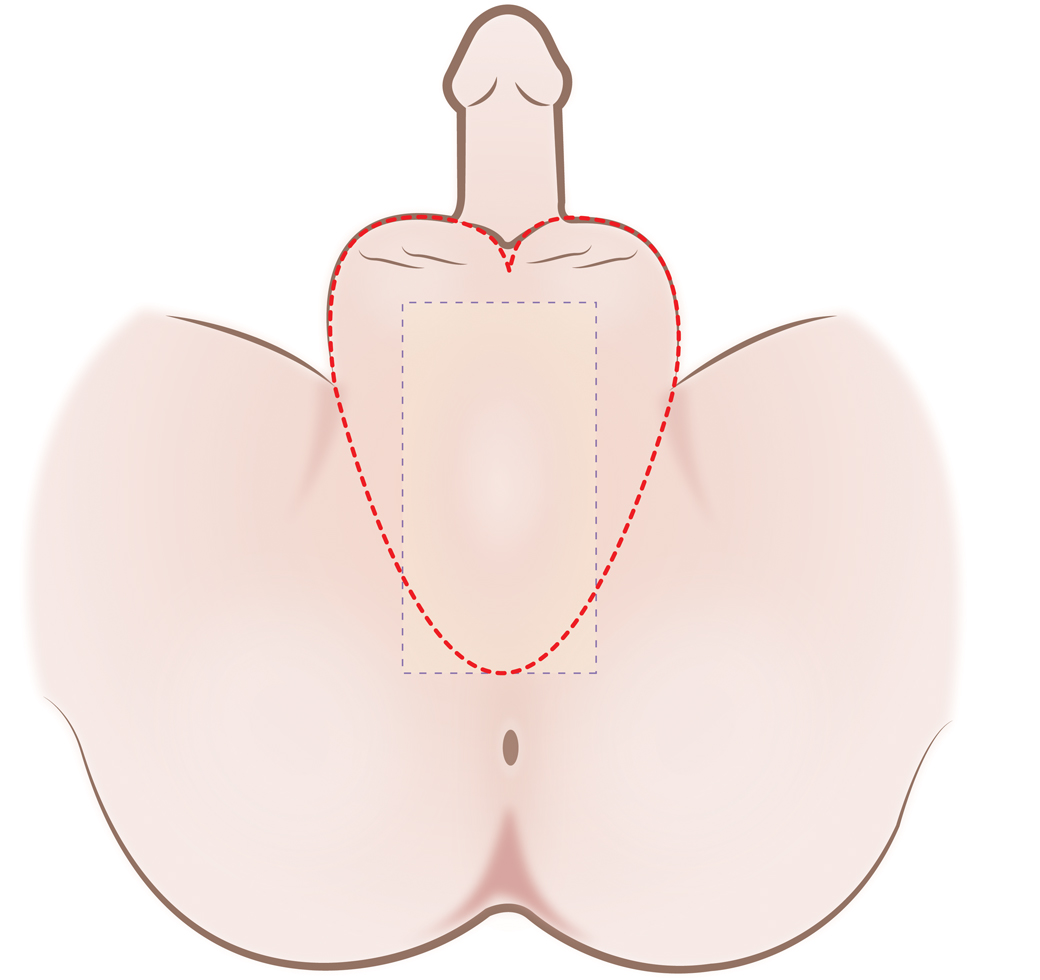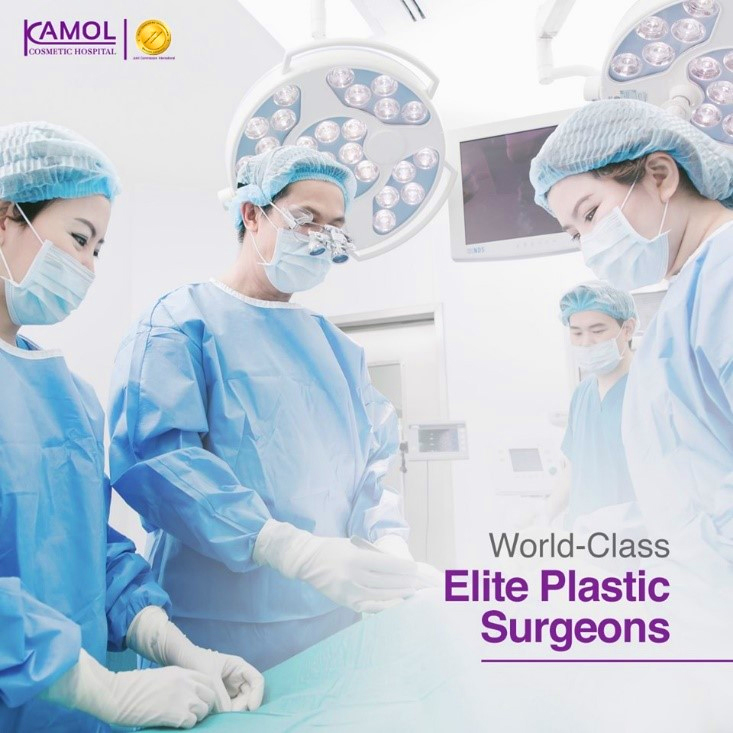여성화 성전환 수술 / 방콕 태국
음경-복막 질(膣) 성형술/PPV
음경-복막 질 성형술/PPV는 가장 최신의 진보된 성전환수술(SRS)의 기술이며 Kamol Cosmetic Hospital은 이 기술을 사용할 수 있는 이 세상에서 몇 안되는 병원들 중 하나입니다. 복막은 복부를 감싸고 있는 조직입니다. 이는 신체에서 가장 여성의 질과 비슷한 조직입니다. 복막은 탄력성이 있고 자가윤활성이 있습니다. SRS-PPV는 음경의 조직을 사용하여 외음부와 질구를 만들고 복막을 끌어당기는 기술로 내부의 질관을 만듭니다. Dr. Kamol 선생님과 의료진들은 이 진보된 두 가지의 시술을 동시에 수행할 수 있습니다. 결장 수술에 경험이 많은 전문의가 복막을 준비할 동안 Dr Kamol 선생님은 외음부와 질구를 만드십니다. 그리고 마지막으로 복막 조직을 관통되도록 끌어당겨 새로 만들어진 질구와 연결합니다. 복막을 사용해 질관을 만드는 것은 사실 새로운 방식은 아니나 트렌스젠더 분들에게는 새로운 접근법입니다. 이 방법은 45년 이상 실제 여성환자들에게 쓰였습니다. 이는 Davydov 기술로 알려져 있으며 질관이 없이 기형으로 태어난 여아환자들에게 쓰였습니다. MRKH 증후군이라고 불리는 이 증상은 4,500명의 여아들 중 1명의 확률로 발생하는 선천적인 기형입니다. 복막조직만이 MRKH 신드롬 환자의 질구에서 자궁을 연결할 수 있도록 하는데 쓰이는 단 하나의 조직입니다. 이 기술은 실제와 같고 기능성이 높은 질을 만드는 가장 진보된 기술일 뿐만 아니라 과거 성전환수술을 받으셨으나 결과에 만족하지 않으시거나 다른 방법들보다 더 실제와 같고 기능성이 높으며 탄력성있고 자가윤활성이 있는 질을 원하시는 분들을 위한 재수술에도 매우 효과적입니다. 저희 병원의 SRS-PPV 수술의 20% 정도는 자가윤활성이 있고 촉촉하며 탄력성있는 질을 원하시는 경우, 다른 병원에서 받으신 도저히 받아들이지 못할 만한 수술결과로 인한 문제들을 해결해야할 경우, 질의 깊이가 충분하지 않은 경우들로 인한 재수술입니다. 이 기술은 과거에 음경의 조직을 전도시키는 방식을 통해 성전환수술을 받으셨거나 수술결과에 만족하시지 못하거나 다른 수술 방식들보다 더욱 실제 여성의 질과 같이 기능하고 탄력성있으며 자가윤활성을 가진 질을 원하시는 환자분들을 위한 재수술에도 탁월한
음경-복막 질 성형술/PPV의 장점
- 이 수술은 처음으로 질을 만드시거나 재수술을 하실 때도 사용 가능합니다. 과거에 성전환수술을 받으셨거나 음경 조직을 사용하여 만들어진 질이 깊이를 잃고 성관계를 가질 수 없게 되었거나 관리가 쉽고 실제와 같이 기능하는 질로 업그레이드하시고 싶은 환자분들에게 유익한 수술입니다.
- 질이 자가윤활성을 띕니다.
- 질에 탄력성이 생깁니다.
- 털이 자랄 염려가 없는 새로운 질
- S자결장을 사용한 질 성형술보다 장 기능 장애가 일어날 확률이 적습니다.
- 내시경 방식(키홀)을 사용하여 눈으로 보기 힘든 아주 작은 4개의 흉터만 남습니다. 주근깨같이 보일 수 있으나 12개월이 지나면 더욱더 옅어지며 사라집니다.
- 복막을 사용한 이 방식은 여성들에게 40년이 넘도록 시술되어 안정성이 있으며 잘 이해된 방식입니다.
음경-복막 질 성형술/PPV의 단점과 한계
- 수술 후 1-2주 동안 장 기능 장애/소화불량 등의 증상이 있을 수 있습니다.
- 수술 후 몇 주 동안 점액의 배설, 변비, 요통(LAR(저전면 절제술) 증후군과 유사: 저위 전방 절제 증후군과 유사)이 나타날 수 있습니다.
- 지방이 복막을 덮고 있으면 수술이 매우 힘드므로 과체중이시거나 복부에 지방이 많으신 분들에게는 수술이 용이하지 않습니다.
- 포경수술을 하셨거나 음경의 피부가 매우 짧으시면 전문의가 질구를 만들기 위해 음모가 없는 음낭의 피부를 사용해야 할 경우가 있습니다. 이러한 경우 환자분은 수술 최소 6개월 전 음낭을 레이저로 제모해야 합니다.
- 복막은 과민하게 예민한 조직이므로 최초 질 확장을 하시고 나면 몇 주 동안 통증이 있을 수 있습니다.
- 질 확장 관리를 하지 않으시면 단 시간에 질이 깊이를 잃으실 수 있습니다.
- 1-2%의 확률로 수술 후 복내 접착이 일어날 수 있습니다.
- 트렌스젠더 여성분들에게 아직 충분한 기간동안 시술되지 않아 만약의 경우에 부작용이 일어날 수 있다는 것을 받아들여야 합니다.
- 그림 1처럼 음경의 중심에 5x6cm 크기로 제모를 하여야 합니다.
- 복잡한 상황이 생기면 S자결장을 사용한 방식으로 바꿔야 할 경우가 생길 수 있습니다.

그림 1. 제모가 필요한 부분
음경-복막 질(膣) 성형술/PPV에 대해 더 알아보기
PPV와 결장 질성형술의 비교
PPV와 S상결장 질성형술은 새로운 질을 만들기 위해 사용됩니다…
복막 질성형술로 업그레이드하기
차 복막 질성형술로 이전에 수술된 질을 더 깊고 윤활성있게 만들 수 있습니다…
복막 질성형술/PPV의 한계점들
가장 진보된 질성형술은 PPV이며 이는 실제 여성과 같은 질의 윤활성을 제공합니다. 또한 다음과 같은 사항들이 있습니다…
Video: Our testimonials.
왜 Kamol Cosmetic Hospital이 음경-복막 질 성형술(SRS-PPV)의 세계적 선두주자인가?
Kamol Cosmetic Hospital은 지속적으로 좋은 수술결과들을 제공하면서 의료진들의 실력을 증명하여 성전환수술에 관한 세계에서 가장 유명한 병원들 증 하나가 되었습니다. 음경과 복막조직을 사용한 질 성형술(SRS-PPV)은 가장 최신의 SRS기술입니다. 저희 Kamol Cosmetic Hospital은 이 수술을 수행할 수 있는 이 세상에 몇 안되는 병원입니다. 복막은 복부를 감싸고 있는 조직입니다. 이는 신체에서 가장 여성의 질과 비슷한 조직입니다. 탄력성이 있고 자가윤활성이 있습니다. SRS-PPV는 음경의 조직을 사용하여 외음부와 질구를 만들고 복막을 끌어당기는 기술로 내부의 질관을 만듭니다. Dr. Kamol 선생님과 의료진들은 이 진보된 두 가지의 시술을 동시에 수행할 수 있습니다. 결장 수술에 경험이 많은 전문의가 복막을 준비할 동안 Dr Kamol 선생님은 외음부와 질구를 만드십니다. 그리고 마지막으로 복막 조직을 관통되도록 끌어당겨 새로 만들어진 질구와 연결합니다.
키홀 수술 방식으로 복부의 네 군데 지점에 눈에 거의 보이지 않도록 작게 절개합니다.







